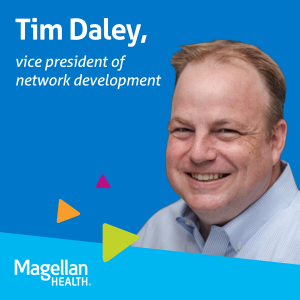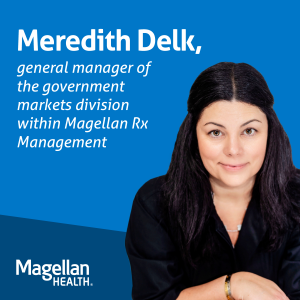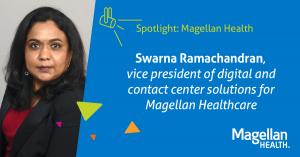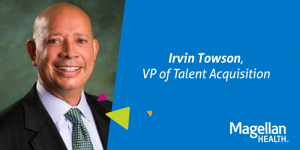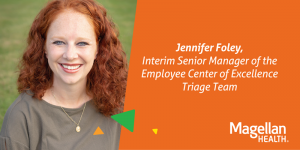Spotlight Magellan Health: Greg Dicharry
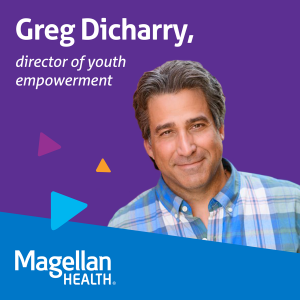
For Greg Dicharry, his work at Magellan Healthcare is not just a job, it’s a passion. Filming and directing documentaries highlighting suicide awareness has been a welcome side gig of Dicharry’s job as national youth empowerment director at Magellan. For the past 14 years, Dicharry has been connecting with people affected in some way by suicide, substance use and other mental health concerns. From those experiences, he launched the MY LIFE (Magellan Youth Leaders Inspiring Future Empowerment) program. MY LIFE provides various activities and workshops for youths ages 13 to 23-year-olds nationally who have experience with mental health, substance use, juvenile justice or foster care-related issues or have a friend or family member coping with these issues. Dicharry’s latest documentary project, “My Ascension,” shows the crippling effects suicide can have on families while telling the captivating personal story of a suicide survivor. Continue reading to learn more about the MY LIFE program and Dicharry’s upcoming documentary.
What sort of projects are you currently working on?
My main responsibility at Magellan is overseeing our MY LIFE program, which we created in 2008 as part of our Maricopa County, Arizona contract. Since 2008, MY LIFE has been leading the way nationally for youth involved in behavioral health and foster care systems. Through regular meetings, special events, performances, social media, and local and national presentations, youth share their stories and support each other in their recovery goals. In response to the COVID-19 pandemic, Magellan launched the Stay Home for MY LIFE virtual youth fest series in 2020. I also do a lot around suicide prevention for the Company and am a part of the new Suicide Center of Excellence. In my spare time, I create documentaries. Over the last three years I’ve been working on a documentary called “My Ascension.” Prior to that I had done another documentary called “Suicide: The Ripple Effect” but this new one is on teen suicide. I made it with a young lady who is a suicide attempt survivor. She attempted to take her life by gunshot and the result was that she is now paralyzed. She had this rebirth through that and now uses her experience to help others via speaking and advocacy, so the story is largely her story but also of other young people in the community who were successful in their suicide attempts and the aftermath of how that has affected their families.
“My Ascension” will premiere nationally on PBS (Public Broadcasting Service) in September. The primary distribution method has been virtual community screening around the country. We’ve done screenings with a couple of universities and several advocacy and mental health groups.
What inspires you to create these documentaries?
I dabbled in film and media throughout high school and college. When I moved to Los Angeles I started working on projects like movies, award shows, commercials and music videos and learning that way.
With the MY LIFE program, I had gotten a camera through Magellan and was able to start producing videos with the youth group so that got me back into filming and then I met a man through work, who’s a suicide attempt survivor, we became friends and he approached me wanting to make a documentary and I helped him with producing and directing. I didn’t plan on doing another documentary, but the opportunity came to tell this very compelling story for “My Ascension” that could reach a lot of young people and empower them in helping them to share their stories.
I also have a personal connection to this where I’ve found myself struggling with suicidal thoughts, and my cousin who was bipolar with a substance abuse issue and died by suicide about 20 years ago. I saw the impact that had on his family and that inspired me to be interested in the topic.
Why is Magellan the best place to do this project?
Magellan is open to innovation, even though it’s a big company everyone is open to new ideas to help better serve our members and customers. For example, with MY LIFE I came up with the idea to do this, it wasn’t something that was a part of my job description or something Magellan had ever done. But they let me run with it and it was successful. People saw the value of it and saw that the opportunity to serve our members and provide them with something in a different way.
With the documentaries, my job had allowed me to be able to do that kind of stuff on the side and it ended up being another way to connect with people differently way and blend the work I’m doing here.
What are your thoughts on the culture here at Magellan? How has the culture at Magellan impacted your project?
It’s a culture that’s open to innovation and that’s open for doing unique things that are engaging for our customers. It’s very supportive, encouraging, and positive work happening here.
- Learn more about MY LIFE here.
